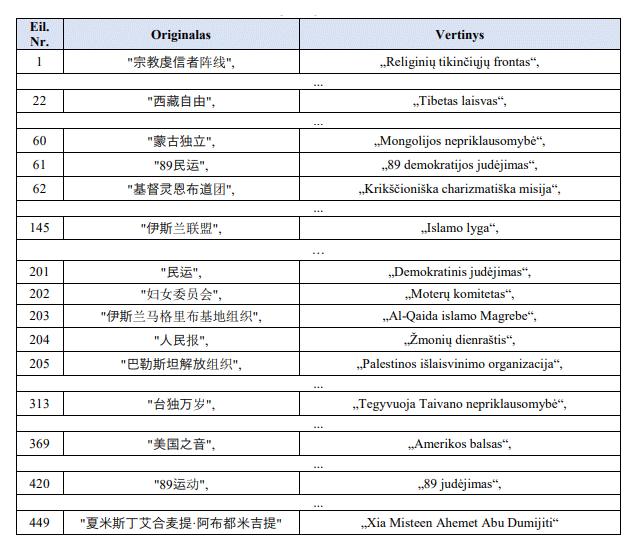After purchasing a new smartphone, the proud owners of the device would think that they can do anything with their phone.
After all, the device is their property, and no one can tell them otherwise. But not necessarily, as Chinese smartphone maker Xiaomi seems to be able to decide what its users can or cannot do. According to a security report, the manufacturer has the ability to remotely censor a number of keywords from its phones.
The news that came from Lithuania’s Defense Ministry, that advised users of the company’s devices to get rid of them, "as fast as reasonably possible."
The Lithuanian report found that the Xiaomi Mi 10T 5G was receiving an update from Xiaomi that added a list of blocked keywords.
At the time of the discovery, there were 449 keywords on the alleged list, which included terms like "free Tibet," "Taiwan independence,” "voice of America," "democracy movement," and others.
The list that is written in both Latin and Chinese characters, is stored inside a file called the MiAdBlacklistConfig.
While this hasn’t been enabled in Europe, researchers claim Xiaomi has the technical capability to censor these terms at will.
Dr. Tautvydas Bakšys, one of the researchers that discovered this list, said that while the “content filtering function was disabled on Xiaomi phones sold in Lithuania,” it could be activated “remotely at any minute without the user’s knowledge.”
In response to this news, Xiaomi said that:
The company denied the allegation, and said that it won't ever censor contents on users' phones because it has no rights to do that.
However, it should be noted that the company has not denied that it has that ability.
The Nacionalinis Kibernetinio Saugumo Centras (National Cyber Center) report also said the Xiaomi phones were sending encrypted phone usage data to a server in Singapore, which could be against European data regulations.
In response, a Xiaomi spokesman said:

MiAdBlacklistConfig file. (Credit: Nacionalinis Kibernetinio Saugumo Centras)China is no stranger to censorship, and laws that limit the personal freedom of its citizens.
This ability by Xiaomi explains how easy it is for technology to turn from a handy tool of everyday usage, into a spy.
It should be noted that research (PDF) was only done on a single Xiaomi phone, meaning that the terms may also exist on other Xiaomi phones beside the Mi 10T 5G.
It's also worth noting that the relationship between Lithuania and China at this time is not well.
Among the reasons why Lithuania recommended consumers to avoid Chinese phones, is also because the country is experiencing o diplomatic issue with China.
Beijing has demanded that Lithuania withdraw its ambassador, and said it would recall its envoy to Vilnius after Taiwan announced that its mission in Lithuania would be called the Taiwanese Representative Office.